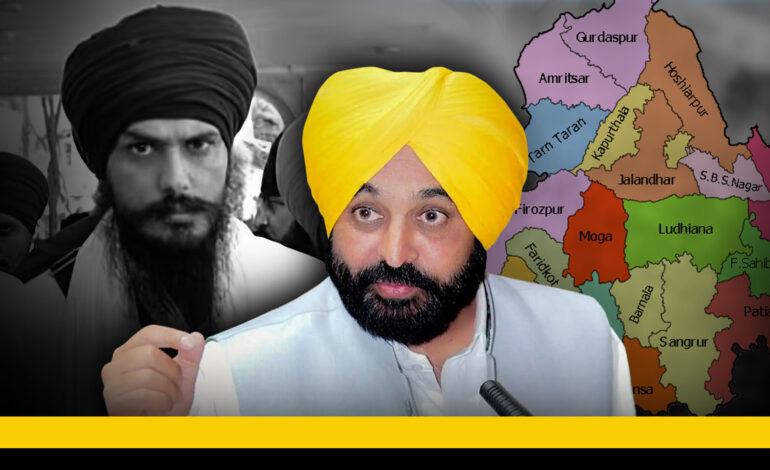
Nearly two months after the Aam Aadmi Party (AAP) swept the Punjab Assembly elections in 2022, party supremo Arvind Kejriwal held a roadshow for a party candidate in the run up to Lok Sabha byelection in Sangrur, a seat that had fallen vacant after Bhagwant Mann resigned and assumed office as Chief Minister. While Kejriwal was seen standing out from the car’s sunroof, the new Mann travelled in the car clutching its window. Earlier, some pictures that went viral showed him touching Kejriwal’s feet after becoming the Chief Minister. Such visuals cemented the public perception that the AAP-led Punjab government was going to be controlled from Delhi.
No doubt, the AAP’s massive victory in the Assembly elections was well defined by the party’s election slogan “Ek Mauqa Kejriwal Nu (One chance for Kejriwal)” that appealed to the people who had been completely disillusioned with the Shiromani Akali Dal (SAD) and the Congress, the parties that had ruled Punjab alternately thus far. Eventually, the Shiromani Akali Dal (Amritsar) leader and Khalistan supporter, Simranjit Singh Mann, won Sangrur, an AAP stronghold, which was an indication that popular disillusionment with the AAP government had set in sooner than expected.
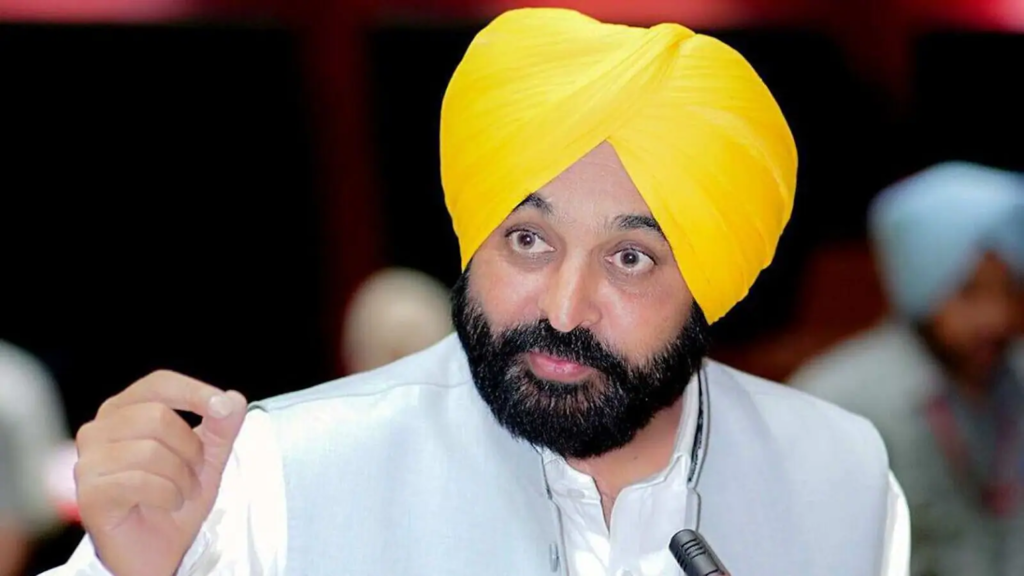
After having completed one year in power, the AAP is yet to fulfil its election promises. There are several instances of the party’s publicity stunts leaving it with an egg on its face. Here, some instances:
- Mann had to be admitted to a hospital after he drank a glassful of water directly from the Kali Bein, a holy rivulet in Sultanpur Lodhi, in media presence. He was trying to demonstrate that Balbir Singh Seechewal, who was nominated to the Rajya Sabha by the AAP, had made the river water drinkable through his sustained efforts. In fact, the party had evoked fierce criticism for choosing persons like Raghav Chadha and Ashok Kumar Mittal, Chancellor of Lovely Professional University, as its nominees after sweeping the Assembly elections. Both Mittal and Chaddha are considered political green horns and do not have much popular acceptance in Punjab . Chaddha is also perceived as an outsider .
- Sidhu Moosewala, famous singer and Congress leader, was murdered soon after his security was downgraded; and details were planted in the media to show that as a progressive step to end VIP culture in the debt-ridden State.
- In less than two months after the AAP had formed government on the promise of rooting out corruption, its Health Minister Vijay Singhla was dimissed from the Cabinet on corruption charges. Singhla, however, continues to organise public gatherings and attend party meetings.
Emergence of Amritpal
Against this backdrop, Punjab has seen the emergence of the self-styled Khalistan propagator Amritpal Singh, who heads the Waris Punjab De, a political group. In the State’s social, religious and political circles, Amritpal’s rise is believed to have the blessing of the State and Central governments. Before he was declared fugitive by the Punjab police on March 18, Amritpal had been active for over seven months. He was challenging the Indian state through his fiery speeches from public platforms and interviews to the local media. In Punjab’s recent past, Khalistan sympathisers have been given life imprisonments for possessing incriminatory literature. After Sidhu Moosewala’s murder, the State police cracked down on songs and singers for allegedly promoting gun culture.

In the past few years the Narendra Modi government has shown exceptional alacrity to crush the voices of dissent against, among other things, the revocation of Article 370 and the Citizen Amendment Act. Another instance is the arrest and imprisonment of writers and intellectuals who were allegedly responsible for Bhima Koregaon violence. Also, the Central government has quickly acted against Khalistan supporters abroad. But in the case of Amprital, observers say, it allegedly allowed him to propagate secessionism instead of invoking Article 355 of the Constitution (laying down the duty of the government to protect States against external aggression and internal disturbance) , amass weapons and raise a militia. He was allowed to take out a procession to the Ajnala police station after he had openly threatened to do so. The Ajnala incident was preceded by clashes between police and protesters demanding release of Bandhi Sikhs (political prisoners) at the Mohali border a few days ago but the police seemed to have been caught unawared when the police station was stormed and besieged by the radical mob led by Amritpal.
Though Governor Banwarilal Purohit has publicly admonished the Mann government on several issues, he chose to maintain silence even as Amritpal held public rallies and delivered inflammatory speeches, advocating creation of Sikh sovereign state after separating Punjab from India. Amritpal never shied away from giving calls to pick up guns against the Indian state. While taking law enforcement agencies for a ride, he had been storming gurudwaras and police stations with his gun-wielding supporters and issuing diktats well before Ajnala incident happened.
After the disappearance of Amritpal, the Internet was banned, over 300 persons were detained, and twitter handles BBC Punjabi, media practitioners and activists were withheld. Unsurprisingly, the audio and video messages of Amritpal are being allowed to do the rounds on the social media. The AAP government has banned several songs supporting secessionism in Punjab in the recent past. But a different yardstick is being used for Amritpal.
BJP, AAP on the same page?
In Punjab, both the Bharatiya Janata Party (BJP) and the AAP seem to be normalising the Rashtriya Swayamsewak Sangh’s Hindutva politics at the national level in an effort to make Punjab Congress-mukt (free). The AAP leadership has been leaving no opportunity to rake up the wounds of 1984 to attack the Congress and its former president Rahul Gandhi. While the BJP has been successful in poaching Congress stalwarts such as Amarinder Singh, Sunil Jhakar and Manpreet Singh Badal and Charanjit Singh Channi, it is yet to recover from the election defeat. Still, the embattled Congress seems to be the only formidable opposition force in Punjab.
The return of Sidhu
The release of Congress leader Navjot Singh Sidhu from the Patiala Central Jail, where he served a sentence of 10 months following his conviction in a 1988 road rage case, has given a new lease of life to the party. After coming out of the jail, Sidhu has started training his guns on the BJP-led Central government, while accusing Mann of being subservient to Delhi. He has slammed the State government over the law and order situation in Punjab, alleging that jails have turned into suvidha centres (convenience points) for crimes. His visit to the parents of Sidhu Moosewala, who had unsuccessfully contested the Assembly election on the Congress ticket last year, is a counter to the attempts by the Khalistan sympathisers to appropriate the cultural legacy of the popular singer who was murdered on May 29, 2022.

The 59-year-old cricketer turned politician has been reminding people of Arvind Kejriwal’s pre-election statement of generating Rs. 30,000 crore by ending corruption and Rs. 20,000 crore by checking the sand mafia. It is an irony, he says, that the AAP government is now going with a “begging bowl” to the Centre seeking Rs 50,000 crore annually. On March 24, Mann had sought annual aid from the Centre for at least two years citing the poor financial health of the State government. He has also questioned Mann about the Centre’s growing grip on Punjab, citing the increase in the jurisdiction of Border Security Force (BSF), a central paramilitary force, up to 50 km from Pakistan border in Punjab.
Incidentally, the police action against Amritpal came after Mann’s meeting with Union Home Minister Amit Shah earlier in March, which brought additional companies of paramilitary forces to Punjab. “Now friend, you have brought 50 companies (of paramilitary force). Which mega deal have you signed?” Sidhu asked CM Mann.
The general perception in Punjab is that the State government has been acting at the behest of the Central government, by allowing Amritpal to become an icon initially and then creating a spectacle of a final crackdown on him. The idea, people believe, is to vilify Punjab and Sikhs, who were at the forefront of a relentless year-long agitation that forced the Centre to roll back three controversial farm laws. Mann’s critics feel that he has been playing the Centre’s game and fear that the ground is being prepared for President’s rule in Punjab where Sikhs, who are a minority at the national but a majority within the State. They cite the example of Jammu and Kashmir, which is under the Centre’s direct rule since 2018 in support of their apprehensions.
In fact, Haryana’s Home Minister has said on record that the Punjab police was slow to act on a tipoff about Amritpal’s presence in his State a day after he reportedly gave the slip to the police in Jalandhar on March 18. Days before Amritpal caught national attention following the Ajnala incident, TV interviews of Lawrence Bishnoi, who is considered a high-risk criminal, emerged from the jails. Lawrence has justified the murder of Sidhu Moosewala _ a comment seen as aimed at provoking Punjabis. Lawrence claimed to be a nationalist, saying he was opposed to the idea of Khalistan. Even Kunwar Vijay Pratap, a retired IPS officer and AAP’s MLA from Amritsar North, has admitted in his media that the Punjab police has been facing a leadership crisis.
There are signs of Amrpital being a product of State government’s inefficiency and the Central government’s manipulations. In support of this apprehension, observers cite the case of Jarnail Singh Bhindranwale, the religious preacher and militant leader in the 1980s. While the Shiromani Akali Dal led by the Badal family has become almost politically redundant due to corruption charges against the leadership and its departure from its core agenda, the popular disenchantment with the Congress party under the leadership of Amarinder Singh and Charanjit Singh Channi had also pushed Punjab towards the AAP.
In this scenario, Sidhu seems to have picked up all the right threads after entering politics again. He has raised the ‘Punjabiyat’ pitch, asserting the State’s sub-national identity. During the marathon Bharat Jodo Yatra, Rahul Gandhi referred to Tamil sub-nationalism positively while speaking in the Lok Sabha earlier in February. Turning to the BJP members, he said: “You will never, ever in your entire life, rule over the people of Tamil Nadu. It can’t be done.” For want of an expression in mainstream politics, the unaddressed regional aspirations of Punjab might continue to give traction to the likes of Jarnail Singh Bhindrenwale and Amritpals.
Subscribe to our channels on YouTube & WhatsApp


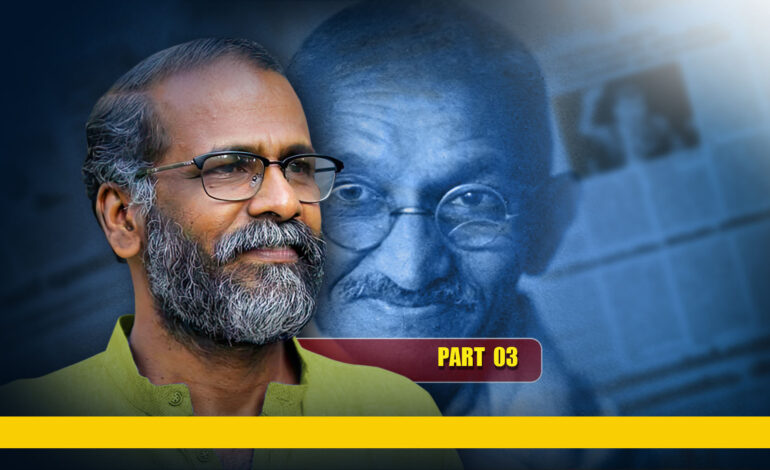


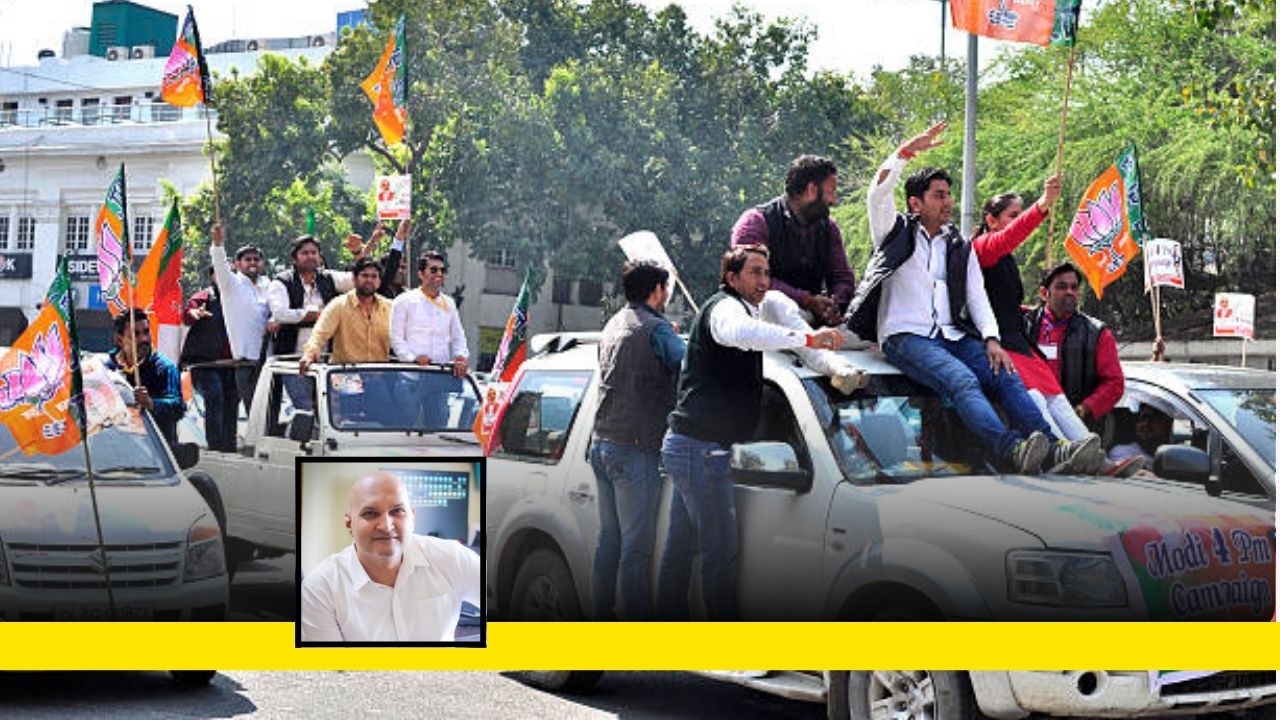




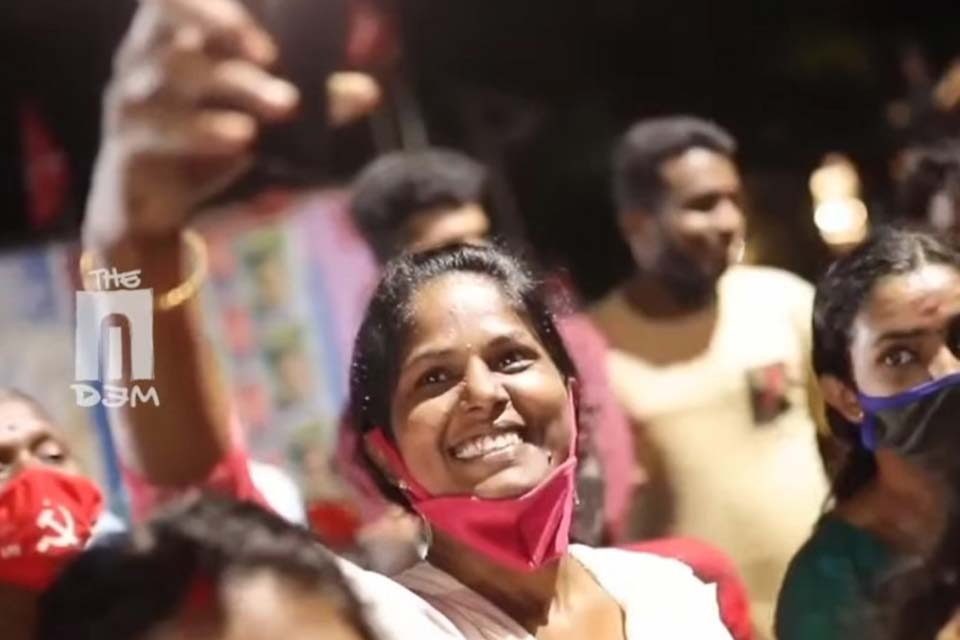

insightful article _ showed in a nutshell the political play in Punjab and the dangers it poses _ thank you